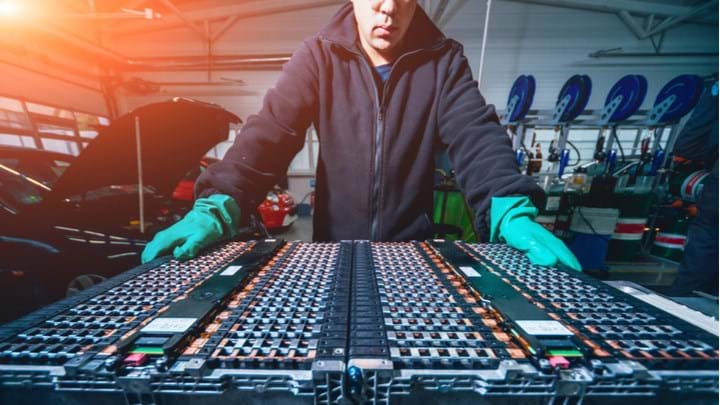Recycling EV batteries

ERAMET, BASF, and SUEZ have partnered to develop an innovative closed-loop process to recycle lithium-ion (Li-ion) batteries from electric vehicles, which could contribute to sustainability.
The project, Recycling Li-ion Batteries for Electric Vehicle (ReLieVe) is to receive €4.7m (US$5.15m) of funding. It is being co-financed by the project partners and the EU.
The growing electric vehicles market will create a “massive” need for recycling. ReLieVe could enable a response to the growing demand and enable Li-ion battery production in Europe. Additionally, it could help Europe to secure a supply of raw materials required for the energy transition.
Starting in January 2020, the project will carry out a series of activities aimed at the large-scale development of this innovative process and structuring an integrated recycling sector which begins at collection and dismantling of end-of-life-batteries for recycling and continues through to the manufacture of new electrode materials. The project is to run for two years.
Each of the project partners is a leader in its sector and is ideally placed in the value chain: SUEZ, an expert in water and waste management, for the collection and dismantling of end-of-life batteries; mining and metallurgy company Eramet (the project lead) for developing a recycling process; and BASF, a leading supplier of cathode active materials with research and development centres worldwide, for the manufacture the cathode active materials. Recovering nickel, manganese, and lithium elements into battery-quality elements is currently at the centre of Eramet’s research and development efforts.
The collaboration along the value chain is expected to support an efficient and integrated approach.
The partners will receive academic support from Chimie ParisTech and Norwegian University of Science and Technology (NTNU) to accelerate the search for innovative solutions. The automotive sector will also back the partners as part of the advisory committee.
Jean-Marc Boursier, Chief Operating Officer of SUEZ, said: “We are proud to bring our expertise and contribute to the recovery of end-of-life battery components through this partnership. Around 50,000 t of batteries are expected to be recycled by 2027 in Europe and it could be multiplied almost tenfold by 2035. With the ReLieVe project, SUEZ is supporting the development of alternative approaches that blend circular solutions with sustainable urban mobility.”
Laurent Joncourt, Chairman of Eramet Ideas, said: “The ReLieVe project responds to the European Commission’s appeal to unite European players to position itself in the fast-growing lithium-ion battery market. Thanks to this funding, the ReLieVe project will be able to accelerate its work and progress towards the construction of a lithium-ion battery recycling sector with an innovative and competitive process on a European scale.”
ReLieVe is co-funded by EIT Raw Materials, a consortium initiated and funded by the European Institute of Innovation and Technology (EIT), a body of the EU. It is, worldwide, the largest consortium in the raw materials sector. Funding is provided under Horizon 2020, the EU Framework Programme for Research and Development.
EIT Raw Materials has a vision to develop raw materials into a major strength for Europe. Its mission is to enable the European minerals, metals and materials sector to be sustainably competitive along the value chain by driving innovation, education, and entrepreneurship.
Recent Editions
Catch up on the latest news, views and jobs from The Chemical Engineer. Below are the four latest issues. View a wider selection of the archive from within the Magazine section of this site.




